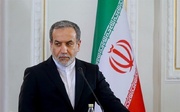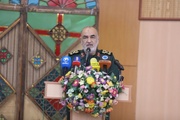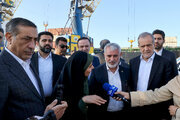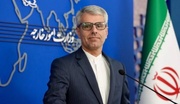On January 12, US President Donald Trump has waived a raft of sanctions against Iran as required under a 2015 nuclear agreement, staying within the deal for the time being, but the US president warned European allies and Congress it will be the last such waiver he signs if they fail to agree to radical changes.
With his announcement, the president in effect began a four-month countdown until the US ceases to comply with its obligations under the agreement. The next sanctions waivers fall due on 12 May. The president laid down conditions for signing those that former diplomats involved negotiating the deal said were all but impossible to meet.
To discuss the issue we reached out to Ryan Costello NIAC assistant policy director.
Following is the text of the interview with him:
President Trump has announced that removing time limitations for Iran’s nuclear activities, unrestricted inspections and relating Iran’s missile program to the JCPOA all are necessary for the US not to withdraw from the JCPOA. Will the Europe accept these conditions? What about Iran?
If the Trump administration desires some or all of the changes to the JCPOA that the President laid out in January, it would be well-advised to re-commit to abiding by the terms of the JCPOA in order to restore trust that would be needed for any potential follow-on agreement. Only serious, multilateral negotiations have proven successful in achieving US policy goals with respect to Iran's nuclear program. Yet, rather than follow this blueprint, the Trump administration kicked the JCPOA to the US Congress and Europe, seemingly setting up a process that can only fail.
Iran is not going to accede to unilateral US changes to a multilateral accord. So far, it also appears that Europe will remain unwilling to go along with any demands that would result in violations of the JCPOA. Tying the agreement's fate to Iran's missile activities or unilaterally extending sunsets would likely be non-starters. However, Europe appears to be open to additional pressure outside of the accord and has hinted that they could go along with additional sanctions on Iran's missile program if the US remains within the deal.
Over the past 3 months the European states have made lots of efforts to convince the US congress and administration that a better agreement with Iran cannot be possible made on the ruins of the JCPOA. Will the EU and the US congress be able to reach an agreement on the JCPOA that can meet Trump’s demands? What can be like such a possible agreement?
Trump has left little wiggle room for Europe and Congress to reach an agreement that satisfies his demands while avoiding violations of the JCPOA, despite some of the vague language in his January 12 statement. If Trump is willing to settle for actions that stop short of altering the JCPOA, it might be possible that he would be willing to declare victory and extend sanctions waivers again in mid-May. However, given Europe's commitment to the deal, the division of the US Congress and Trump's seeming lack of interest in the details, the likelihood of such an agreement emerging appears low.
What can be the EU alternative, if the US withdraws from the JCPOA? If the US withdraws, the situation for investment and working in Iran will worsen. In this case what real guarantees can be offered to Iran by the EU?
If the US appears likely to follow through on its threat to terminate the agreement, the EU could put in place a strong blocking resolution that would bar European companies from complying with US secondary (extraterritorial) sanctions waived under the JCPOA. In accompaniment with additional measures, a blocking resolution could provide protection for European companies to continue to conduct business with Iran as permitted by the JCPOA, thus potentially sustaining relief needed to keep the deal alive.
While such a course would not be a silver bullet for preserving the JCPOA and would require substantial European resolve, there is a precedent. Europe imposed a blocking resolution in 1996 in response to secondary sanctions targeting European energy companies, which resulted in the Clinton administration backing down from seeking to enforce them. Today, with a nuclear accord to preserve, there is arguably greater justification for Europe to contemplate such a step.
Interview by Payman Yazdani






















Your Comment